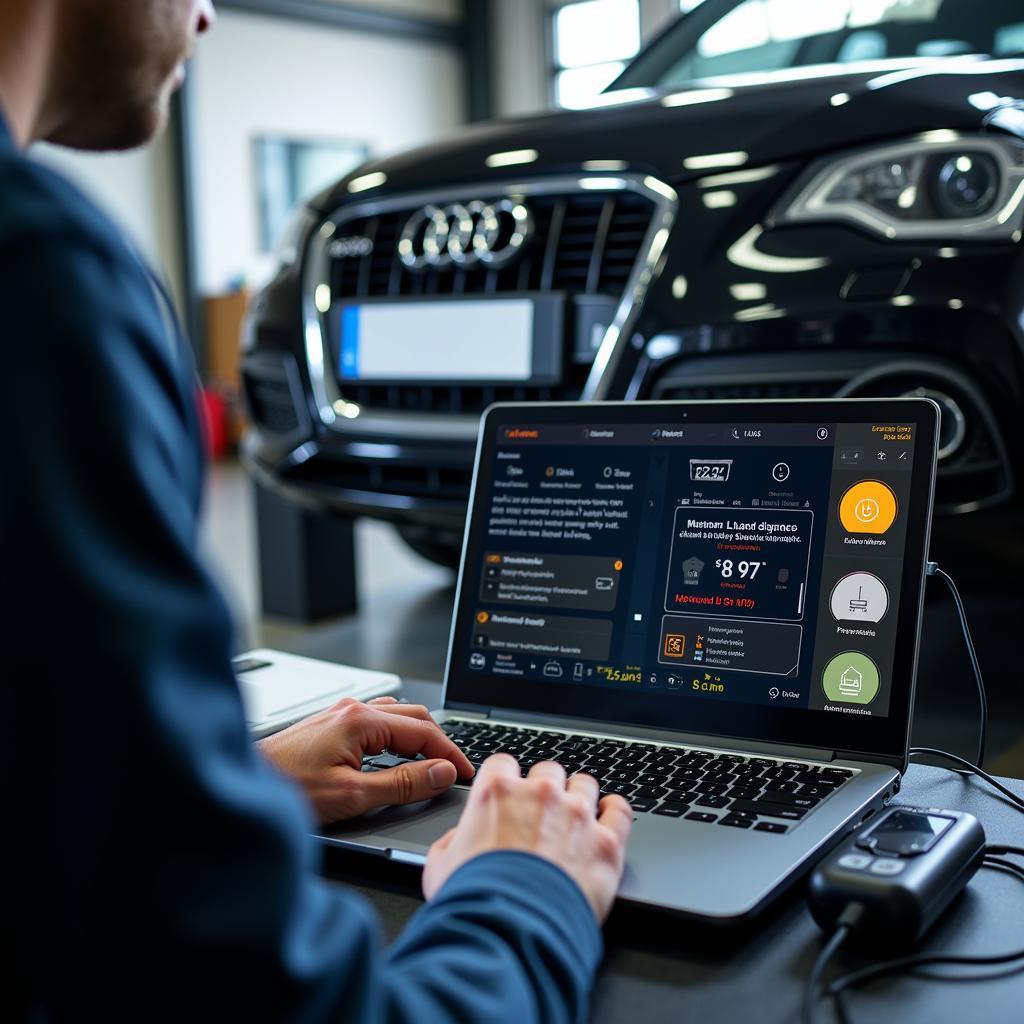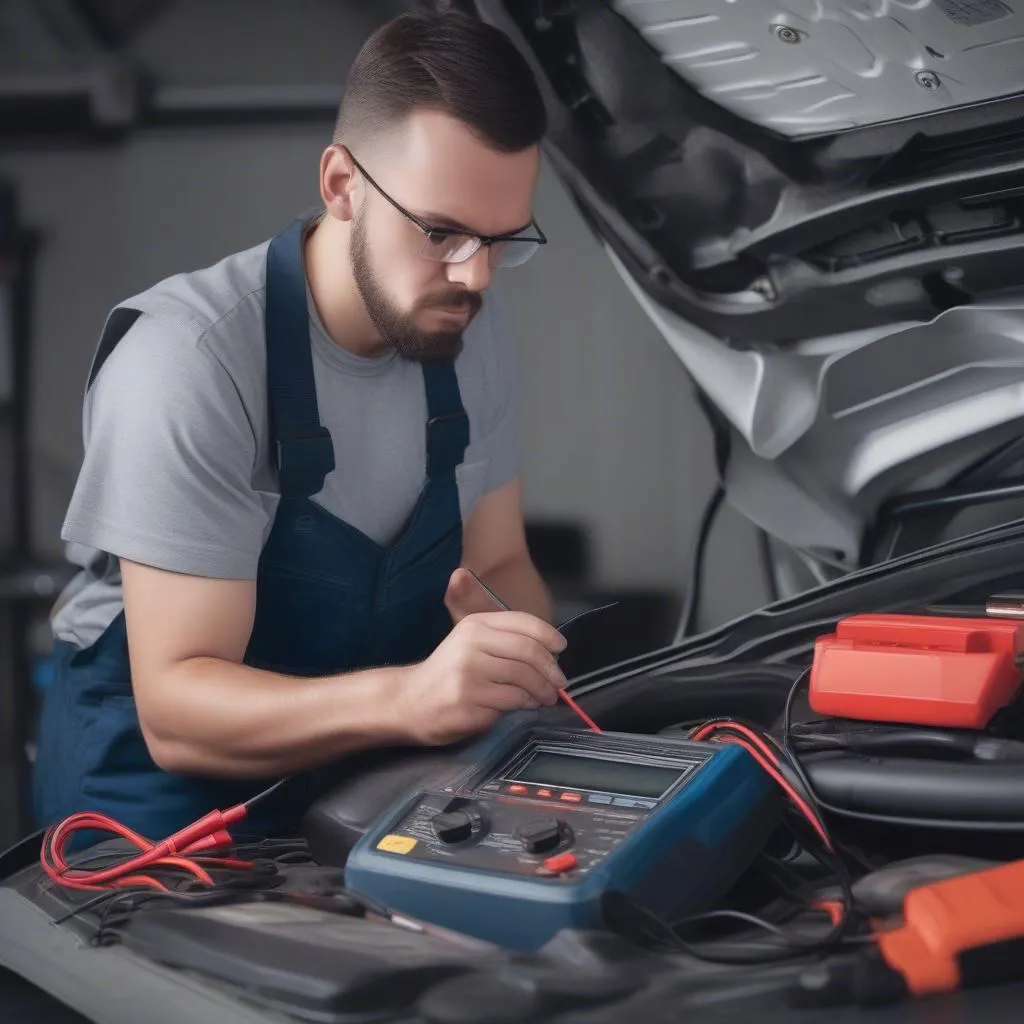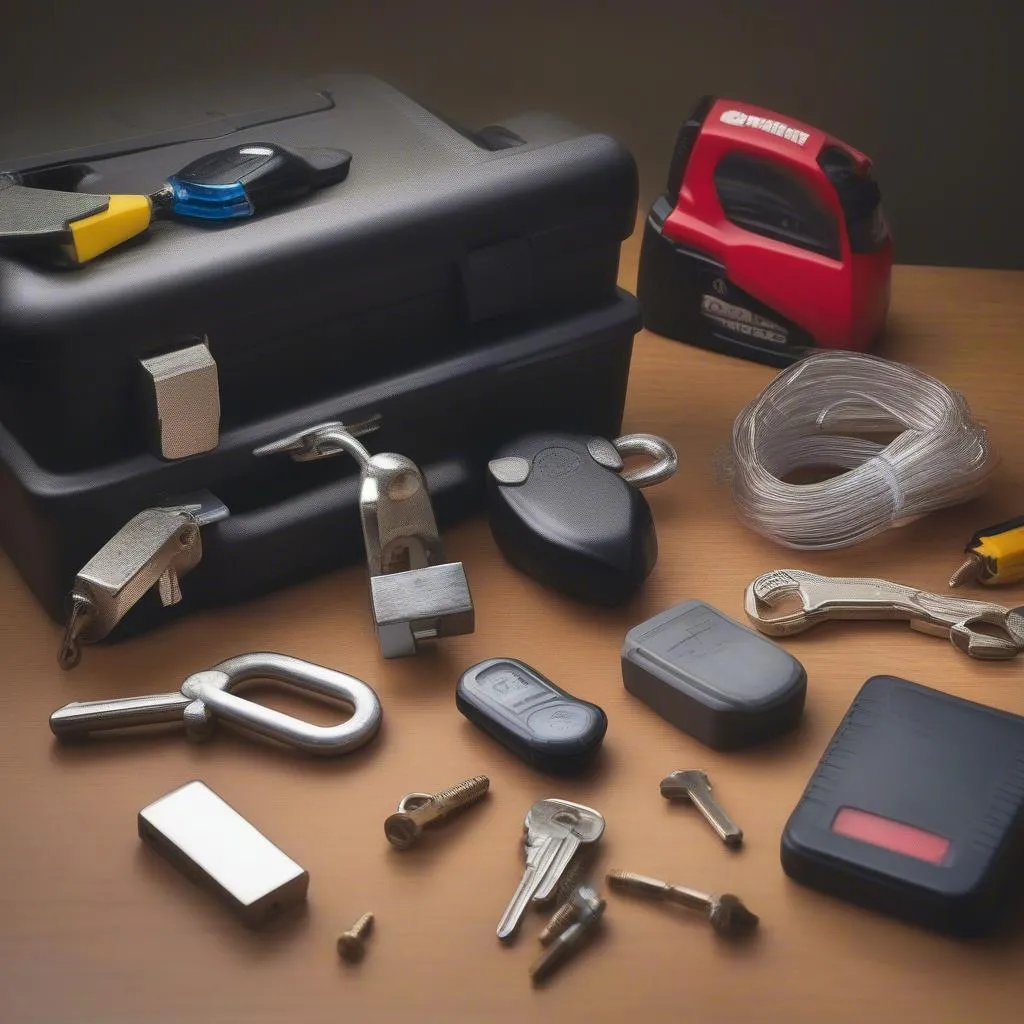The Audi brake system warning light is a red or yellow symbol that illuminates on your dashboard to alert you of potential braking system issues. While it can be a bit unnerving to see this light pop up, understanding its meaning and taking prompt action can help ensure your safety and prevent further damage to your vehicle.
Common Reasons for the Audi Brake System Warning Light
Several factors can trigger the brake system warning light in your Audi. Let’s delve into some of the most common culprits:
- Worn Brake Pads: Your Audi is equipped with brake pad wear sensors that trigger the warning light when the pads wear down to a certain level. This is a normal part of wear and tear and requires a brake pad replacement.
- Low Brake Fluid Level: Brake fluid is crucial for transmitting the force you apply to the brake pedal to the wheels, enabling your Audi to stop. A leak in the braking system can lead to a drop in brake fluid level, triggering the warning light.
- Faulty Brake Light Switch: The brake light switch is responsible for activating your brake lights when you press the brake pedal. A malfunctioning switch can disrupt this process, illuminating the warning light.
- ABS Issues: Your Audi’s Anti-lock Braking System (ABS) is a safety feature that prevents the wheels from locking up during hard braking. Issues with the ABS system, such as faulty sensors or a malfunctioning control module, can trigger the warning light.
- Electronic Parking Brake Problems: Many modern Audis are equipped with electronic parking brakes. Malfunctions within the electronic parking brake system, such as a faulty switch or sensor, can activate the warning light.
 Audi Brake Warning Light on Dashboard
Audi Brake Warning Light on Dashboard
Diagnosing the Problem: What to Do When the Light Comes On
If the brake system warning light appears on your Audi’s dashboard, it’s crucial to address it without delay. Here’s a step-by-step guide on how to proceed:
- Safely Pull Over: Find a safe location to pull over as soon as possible. Driving with a potential brake system issue can be extremely dangerous.
- Check Your Brake Fluid Level: Locate the brake fluid reservoir under the hood of your Audi (refer to your owner’s manual for the exact location). Carefully check the fluid level. If it’s below the minimum mark, adding brake fluid might temporarily resolve the issue, but it’s essential to have the system inspected for leaks.
- Inspect Your Brake Lights: Have someone press the brake pedal while you check if all brake lights are functioning correctly. If the brake lights aren’t working, it could indicate a faulty brake light switch.
- Avoid Driving Further: If you suspect a serious brake system problem (low brake fluid, unusual noises when braking, or a spongy brake pedal feel), it’s best to avoid driving your Audi altogether.
What About Remote Diagnostics and Software Solutions?
In today’s technologically advanced world, remote diagnostics and software solutions are becoming increasingly prevalent in the automotive industry. These solutions can be valuable for addressing certain aspects of your Audi’s brake system:
- Remote Diagnostics: Some modern Audis are equipped with remote diagnostic capabilities. By connecting your vehicle to a diagnostic tool, either at a service center or remotely, technicians can read fault codes stored in your Audi’s computer system, potentially pinpointing the root cause of the brake system warning light.
- Software Updates: Occasionally, software glitches within your Audi’s complex electronic systems can trigger warning lights, including the brake system light. Remote software updates, often performed wirelessly, can address these glitches and resolve the issue.
 Mechanic Performing Remote Diagnostics on Audi
Mechanic Performing Remote Diagnostics on Audi
It’s important to note that while remote diagnostics and software solutions can be beneficial, they might not be able to address all brake system issues. Physical inspections and repairs might still be necessary, depending on the nature of the problem.
Seeking Professional Assistance
While some minor brake system issues might be resolved with simple fixes like adding brake fluid or replacing a worn brake light switch, it’s crucial to seek professional help for a thorough diagnosis and repair.
“Ignoring your Audi’s brake system warning light can have serious consequences,” says Mark Schmidt, a seasoned Audi technician with over 20 years of experience. “Addressing the problem promptly ensures your safety and can prevent costly repairs down the line.”
A qualified mechanic specializing in Audi vehicles can accurately diagnose the issue using specialized equipment and recommend the appropriate course of action.
Preventing Future Brake System Issues
Taking proactive steps to maintain your Audi’s braking system can help prevent future issues and ensure optimal performance:
- Regular Brake Inspections: Adhere to your Audi’s recommended maintenance schedule for brake inspections. Regular inspections allow mechanics to identify and address potential issues before they escalate.
- Timely Brake Pad Replacement: Replace your Audi’s brake pads as soon as they wear down to the recommended level. Driving with worn brake pads can damage the rotors and other components, leading to more extensive and expensive repairs.
- Quality Brake Fluid: Use high-quality brake fluid that meets your Audi’s specifications. Over time, brake fluid can absorb moisture, reducing its effectiveness. Regular brake fluid flushes as recommended by your owner’s manual are essential.
2009 audi a4 brake pad warning light reset
Conclusion
Your Audi’s brake system is paramount to your safety on the road. Never ignore the brake system warning light, as it signals a potential issue that requires immediate attention. While remote diagnostics and software solutions can offer convenient solutions for certain problems, remember that professional assistance from a qualified Audi technician is often necessary for a complete diagnosis and repair. Regular maintenance and prompt attention to warning signs are essential to keep your Audi’s brakes in peak condition and ensure your peace of mind behind the wheel.


